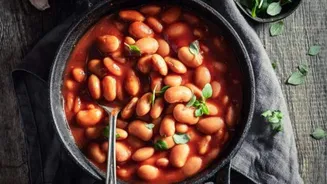When it comes to children’s health, parents are always extra cautious — especially about what goes into their diet. One of the most common questions parents ask is: Is jaggery safer than sugar for kids?
Which one should be given, and when? Here’s what experts say.
Avoid Sugar and Jaggery Before Age 2
According to pediatric experts, children under the age of two should not be given sugar or jaggery at all. At this stage, a child needs to develop a natural taste for food. Introducing sugar too early can create dependency, increase cravings, and elevate the risk of long-term health problems.
After Age 2: Jaggery or Sugar?
If parents want to introduce sweetness after the age of two, experts consider jaggery a slightly better option compared to refined sugar — but only in small amounts. Jaggery contains traces of iron, magnesium, and minerals, but it is still a form of sugar and must be used sparingly.
Benefits and Risks of Jaggery
Why some consider jaggery healthier:
- Contains some minerals and natural compounds
- Less processed than sugar
- Provides a quick energy boost
But parents must also consider the downsides:
- The sugar in jaggery may cause sudden energy spikes and crashes
- The sticky texture easily clings to teeth, increasing the risk of cavities — especially in children who don’t brush properly
- Excess consumption may cause heat in the body, stomach pain, constipation, and gastric issues
- High intake over time can affect insulin levels, raising future diabetes risk
Why Sugar Is Riskier Than You Think
Refined white sugar offers only empty calories — energy without nutrients. Excess intake can create serious health issues in children.
Side effects of too much sugar:
- Weight gain and early childhood obesity
- Sudden mood swings and irritability
- Poor concentration and behavioural issues
- Tooth decay and cavities
- Increased risk of heart disease due to higher bad cholesterol
- Sleep disturbances and hyperactivity
Which One Should You Choose?
Doctors agree: jaggery is only slightly better than sugar — but both should be given in very limited quantities. Sweet foods should never be a daily habit for kids. Healthier alternatives include fruits like bananas, apples, dates, and other naturally sweet foods.
Important Tips for Parents
- Do not introduce sweets before age 2
- Control the quantity even after that
- Choose natural sources of sweetness whenever possible
- Teach children proper dental hygiene
- Consult a doctor if the child shows discomfort or digestive problems
Both jaggery and sugar should be given in moderation. While jaggery contains some nutrients, it is still sugar at the end of the day. Mindful choices today will protect your child’s teeth, metabolism, mood, and long-term health.
Disclaimer: This article is for general awareness and not a replacement for medical advice. Always consult a paediatrician or qualified nutritionist before making dietary changes for your child. The publication is not responsible for any adverse outcomes resulting from the misuse of this information.















